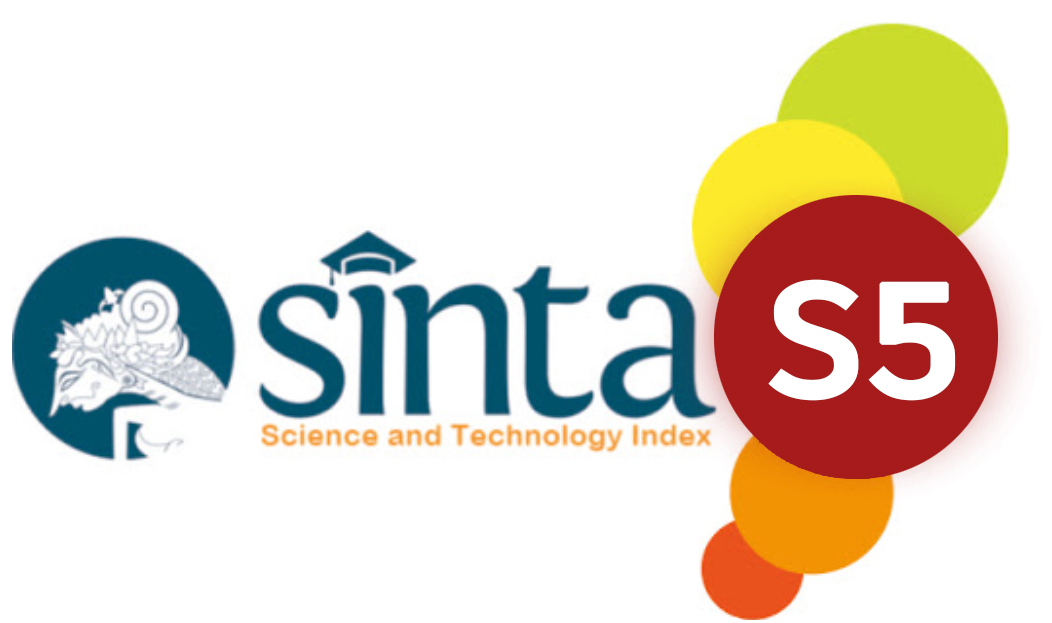Time Pressure’s Impact on Jam Koma and Academic Stress in Undergraduate Students
DOI:
https://doi.org/10.31004/riggs.v4i2.824Keywords:
time pressure, cognitive fatigue, jam koma, academic stress, undergraduate studentsAbstract
This research explores the effects of time pressure on cognitive fatigue, known locally as jam koma, and academic stress among undergraduate students in Samarinda, Indonesia, incorporating age and gender as control variables. Utilizing a cross-sectional survey approach, data were gathered from 150 undergraduate students through validated instruments assessing perceived time pressure, cognitive fatigue, and academic stress levels. Linear regression analyses demonstrated that time pressure exerts a significant influence on both cognitive fatigue and academic stress, whereas age and gender showed negligible impacts. These results highlight the critical role of time pressure in undermining student well-being, emphasizing the need for institutional measures such as time management workshops and mental health support programs. The culturally distinctive jam koma phenomenon offers fresh perspectives on cognitive exhaustion within Indonesia’s academic landscape, enriching global discussions on student mental health. By addressing these findings, universities can foster more supportive academic frameworks, mitigating the adverse effects of time pressure. This study bridges local and international scholarship, advocating for culturally informed interventions to enhance student resilience and productivity.
Downloads
References
Alsaif, B., Hassan, S.-N., Alzain, M. A., Almishaal, A. A., & Zahra, A. (2024). Cognitive Flexibility’s Role in Reducing Academic Stress During the COVID-19 Pandemic. Psychology Research and Behavior Management. https://doi.org/10.2147/prbm.s451211
Altaf, S., Aftab, A., Khan, K. F., Anwar, F., Imran, A., & Syed, M. (2022). Association of Sleep-Wake Pattern With Cognitive Performance and Academic Achievement in Young Adults. Journal of the Pakistan Medical Association. https://doi.org/10.47391/jpma.2087
Chen, J., Chin, W., Tiwari, A., Ha Wong, J. Y., K. Wong, I. C., Worsley, A. J., Feng, Y., Sham, M. H., Yan Tsang, J. P., & Lau, C. S. (2021). Validation of the Perceived Stress Scale (PSS-10) in Medical and Health Sciences Students in Hong Kong. The Asia Pacific Scholar. https://doi.org/10.29060/taps.2021-6-2/oa2328
Dhir, A., Kaur, P., Chen, S., & Pallesen, S. (2019). Antecedents and Consequences of Social Media Fatigue. International Journal of Information Management. https://doi.org/10.1016/j.ijinfomgt.2019.05.021
Gusy, B., Lesener, T., & Wolter, C. (2021). Time Pressure and Health-Related Loss of Productivity in University Students: The Mediating Role of Exhaustion. Frontiers in Public Health. https://doi.org/10.3389/fpubh.2021.653440
Hair, J. F., Risher, J. J., Sarstedt, M., & Ringle, C. M. (2019). When to use and how to report the results of PLS-SEM. European Business Review, 31(1), 2–24. https://doi.org/10.1108/EBR-11-2018-0203
Hidayat, M. T., & Hasim, W. (2023). Putting It Off Until Later: A Survey-Based Study on Academic Procrastination Among Undergraduate Students. Journal of Educational Cultural and Psychological Studies (Ecps Journal). https://doi.org/10.7358/ecps-2023-028-taha
Hlaďo, P., & Harvánková, K. (2024). Teachers’ Perceived Work Ability: A Qualitative Exploration Using the Job Demands-Resources Model. Humanities and Social Sciences Communications. https://doi.org/10.1057/s41599-024-02811-1
Jonge, J. de, & Huter, F. F. (2021). Does Match Really Matter? The Moderating Role of Resources in the Relation Between Demands, Vigor and Fatigue in Academic Life. The Journal of Psychology. https://doi.org/10.1080/00223980.2021.1924603
Kesuma, M. R., Henrika S., M., Ariswati, L. D., Widaryo, C. M., Irianto, E. D. O., & Aini, R. N. (2025). Exploring Climate Risk Effects on Financial Performance in Energy Sector. RIGGS: Journal of Artificial Intelligence and Digital Business, 4(2), 235–241. https://doi.org/10.31004/riggs.v4i2.483
Laato, S., Islam, A. K. M. N., Islam, M. N., & Whelan, E. (2020). What Drives Unverified Information Sharing and Cyberchondria During the COVID-19 Pandemic? European Journal of Information Systems. https://doi.org/10.1080/0960085x.2020.1770632
Loch, F., Ferrauti, A., Meyer, T., Pfeiffer, M., & Kellmann, M. (2023). Acute Effects of Mental Recovery Strategies in Simulated Air Rifle Competitions. Frontiers in Sports and Active Living. https://doi.org/10.3389/fspor.2023.1087995
Lorohoema Soumilena, J. R., Widyorini, E., & Eryani, P. (2023). Relationship Between Self-Regulated Learning and Task Aversiveness With Academic Procrastination in High School Students in the Affirmation Program for Secondary Education. Counsenesia Indonesian Journal of Guidance and Counseling. https://doi.org/10.36728/cijgc.v4i2.2576
Lynch, J., O’Donoghue, G., & Peiris, C. L. (2022). Classroom Movement Breaks and Physically Active Learning Are Feasible, Reduce Sedentary Behaviour and Fatigue, and May Increase Focus in University Students: A Systematic Review and Meta-Analysis. International Journal of Environmental Research and Public Health. https://doi.org/10.3390/ijerph19137775
McCabe, J. A., Banasik, C. S., Jackson, M. G., Postlethwait, E. M., Steitz, A., & Wenzel, A. R. (2023). Exploring Perceptions of Cognitive Load and Mental Fatigue in Pandemic-Era Zoom Classes. Scholarship of Teaching and Learning in Psychology. https://doi.org/10.1037/stl0000347
Nieuwoudt, J. (2023). Improving the Academic Performance and Mental Health of Non-Traditional University Students Through a Shorter Delivery Model: Exploring the Impact of the Southern Cross Model. Student Success. https://doi.org/10.5204/ssj.2660
Noreen, S., Ghayas, S., Khalid, S., & Awan, S. M. (2021). Construction and Validation of Academic Stress Scale for University Students. Pakistan Journal of Education. https://doi.org/10.30971/pje.v38i2.1603
Nweke, G. E., Jarrar, Y., & Horoub, I. (2024). Academic Stress and Cyberloafing Among University Students: The Mediating Role of Fatigue and Self-Control. Humanities and Social Sciences Communications. https://doi.org/10.1057/s41599-024-02930-9
Pedro Varandas, R. S., Lima, R., i Badia, S. B., Silva, H., & Gambôa, H. (2022). Automatic Cognitive Fatigue Detection Using Wearable fNIRS and Machine Learning. Sensors. https://doi.org/10.3390/s22114010
Qiang, J., He, X., Zheng, X., Huang, J., & Xu, C. (2024). The Association Between Intolerance of Uncertainty and Academic Burnout Among University Students: The Role of Self-Regulatory Fatigue and Self-Compassion. Frontiers in Public Health. https://doi.org/10.3389/fpubh.2024.1441465
Rudnik, A., Sobczak, K., Sawicki, A., & Zdun‐Ryżewska, A. (2025). Exploring the Interplay of Stress, Fatigue, and Empathy: The Mediating Role of Cognitive Flexibility in Enhancing the Well-Being of University Students in Medical and Social Disciplines. Plos One. https://doi.org/10.1371/journal.pone.0321946
Yosep, I., Sakti, D. W., Mardhiyah, A., Maulana, I., Hernawaty, T., & Lukman, M. (2024). Screen Fatigue During Online Learning Among First Grade of Nursing Students. Jurnal Keperawatan Komprehensif. https://doi.org/10.33755/jkk.v10i2.631
Downloads
Published
How to Cite
Issue
Section
License
Copyright (c) 2025 Rohana Nur Aini, Muhammad Ramadhani Kesuma, Lusiana Desy Ariswati, Margareth Henrika S., Chandika Mahendra Widaryo, Ellen D. Oktanti Irianto

This work is licensed under a Creative Commons Attribution 4.0 International License.




























